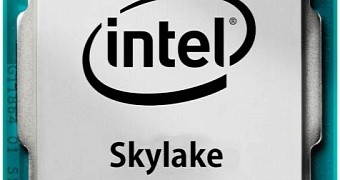We speculated that the new 6th generation Skylake CPU microarchitecture from Intel would arrive in the autumn of this year at IDF in San Francisco, but as it turns out, we were wrong.
However, it seems that we were wrong not about the date, but rather the location, as the new CPU microarchitecture will reportedly not come during the Intel Developer Forum but at the Gamescom trade show in Germany. Apparently, Intel decided to launch the Skylake-S at a gaming event to prove that the new chip should be a gamer's choice when picking out a new CPU.
Not only that, but Intel is seemingly preparing an entire arsenal of next-gen CPUs, like the Core i7-6700K and Core i5-6600K, to be revealed at the conference, together with the famous Z170 chipset, copying in a sense AMD's successful launch of the Fury X at E3.
According to DigiTimes, alongside these top-tier CPUs and chipsets, Intel will also release the Skylake-based Core i7-6700/6700T, Core i5-6600, 6500, 6400, 6600T, 6500T and 6400T products, as well as the H170 and B150 chipsets, after Gamescom, in late August - early September.
It doesn't stop at Gamescom
Apparently, the flurry of Skylake chipsets and CPUs will continue long after Gamescom. The H110 chipsets will be rolled out between September 27 - October 3, while the Q170 and Q150 chipsets are set for late autumn, in October or November.
Moreover, it seems that motherboard manufacturers will start bringing their 100 series-based motherboards on August 5, offering the new LGA1151 socket supporting the somewhat new DDR4 memory.
We also expect Intel to introduce mobile versions of "Skylake" for notebooks, high-performance tablets and portable applications coming with USB 3.1 Type-C ports ready for its own new Thunderbolt in winter of this year.
However, the latest leaks from Coolaler bring us sad news about the real overclocking potential of the new "Skylake-S," as it appears it'll come with the same notorious NGPTIM thermal paste that has plagued the first Ivy Bridge Core i5 and i7 K-series.

 14 DAY TRIAL //
14 DAY TRIAL //